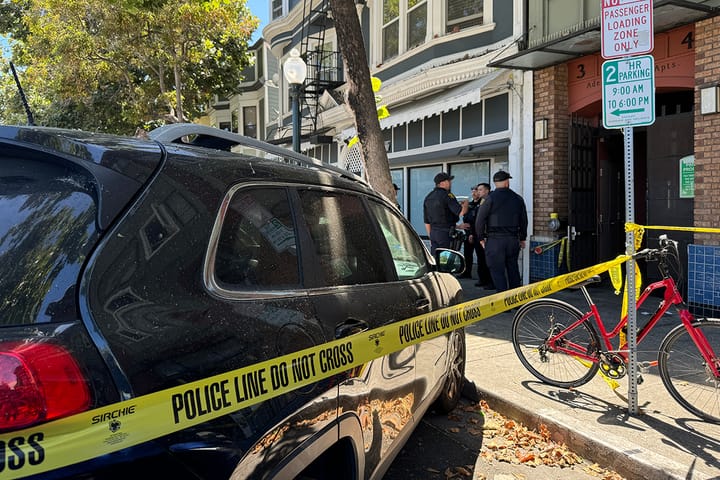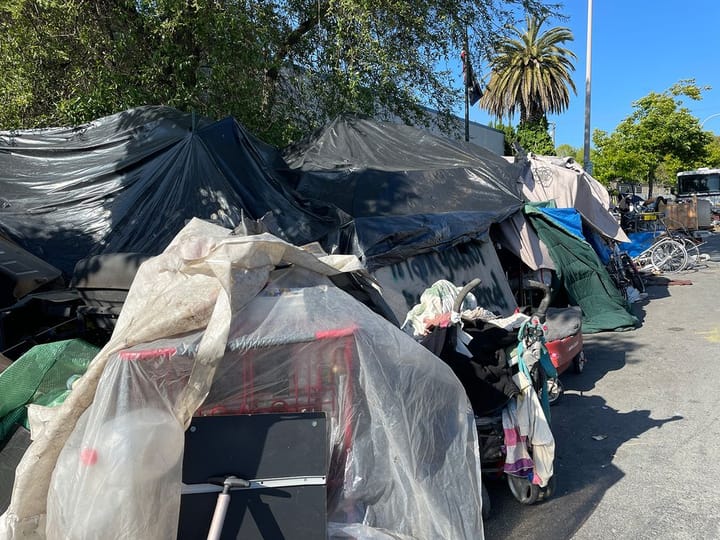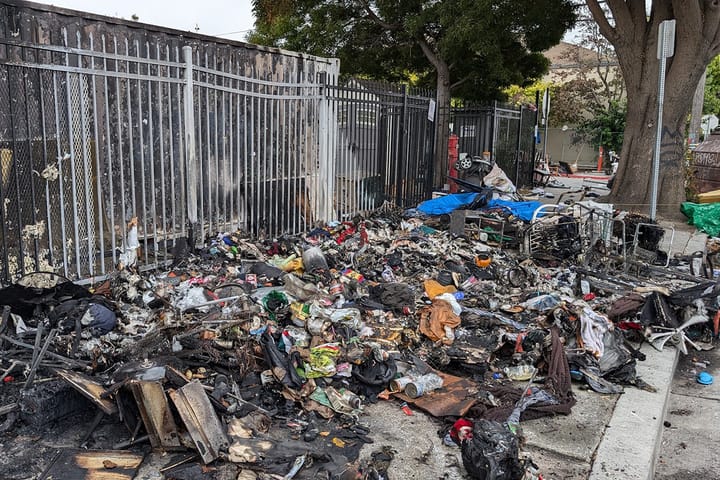BPD Chief Jen Louis faced harassment claims in 2017. Should officials have been told?
There is often tension between what people want to know about police misconduct and what legally can be shared about the confidential process.
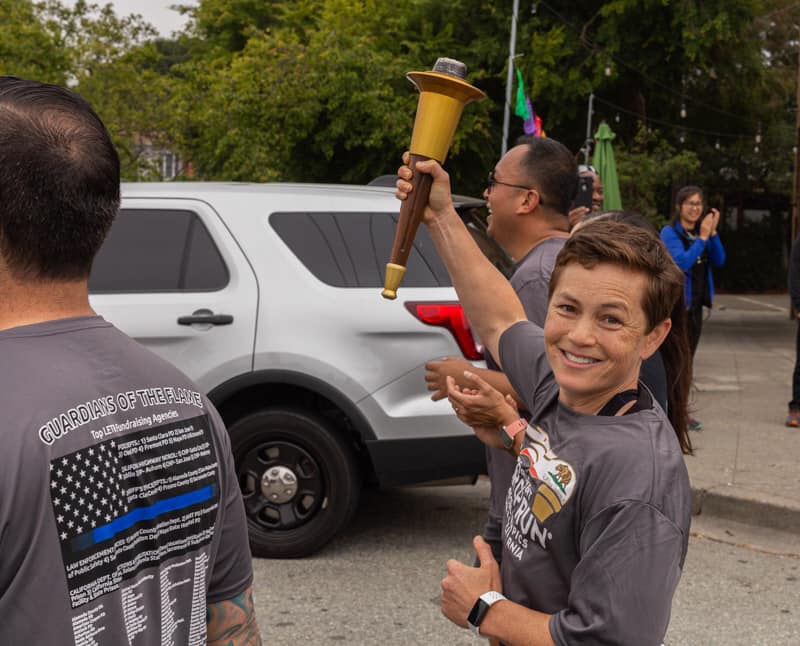
Interim Berkeley Police Chief Jen Louis faced harassment allegations in 2017 when she was a BPD captain, according to interviews and investigative records obtained by The Berkeley Scanner.
The allegations spanned nearly 10 years and focused largely on whether Louis had given unwanted attention to more junior Berkeley police officers when she was a supervisor.
After a year-long review, Louis was cleared of the harassment claims and found in violation of discourtesy, a much lesser offense, for telling her 6-year-old daughter to throw water balloons at a rookie officer in a white tank top during a barbecue attended primarily by cops and their families in 2017.
The city ruled that all other allegations to come out of the 2017 investigation were "not sustained" or exonerated, according to documents from the investigation reviewed by The Berkeley Scanner.
That included allegations from two women, both of whom have left BPD, who described what they said had been improper or unwelcome interactions with Louis earlier in her career when she was a sergeant.
One of the women said she and Louis had a mutual attraction in 2008 when both had other partners, according to interviews and materials from the investigation. She alleged she told Louis she did not want to pursue a relationship and said Louis made her feel uncomfortable by intruding into her personal space on two later occasions.
The other woman said Louis had made efforts to befriend her in 2013, working out with her and giving her career advice.
She later learned that coworkers thought they were dating. When she informed Louis about the rumors, she said Louis had asked her: "How do you feel about that?" The woman said it felt like an unwelcome proposition on top of the other attention.
"She was following her around like a puppy dog," one BPD retiree recently recalled.
The misconduct investigation found that Louis had not dated either woman and that neither had suffered adverse employment actions at BPD. The inquiry deemed the allegations against Louis not sustained.
Louis was completely exonerated of allegations that she had dated an officer at the department sometime prior to 2008. That woman, who has also left BPD, has repeatedly spoken in Louis' defense and denied any allegation of impropriety.
This entire process was always intended to be confidential and private.
And that was largely the case until last week, when the LA Times revealed the details of the misconduct investigation for the first time.
Now, some Berkeley officials are saying City Manager Dee Williams-Ridley should have told them about it — particularly as they are due to decide whether Louis should be Berkeley's next permanent police chief.
Louis has been interim Berkeley police chief since 2021 when her predecessor retired.
Last week, Berkeley Mayor Jesse Arreguín told the San Francisco Chronicle that the allegations "can’t be ignored."
And Berkeley Police Accountability Board Chair John Moore told the LA Times the board would discuss the claims at its next meeting, which comes Jan. 11.
Other officials said only that they wished they could have had more of the background.
"I understand that state law shields this type of information," Councilman Ben Bartlett said Tuesday, "but this bar on transparency hurts victims more than anyone."
City Manager Dee Williams-Ridley declined to comment on the subject because it is a personnel matter.
Police chief vote postponement brought claims back to light
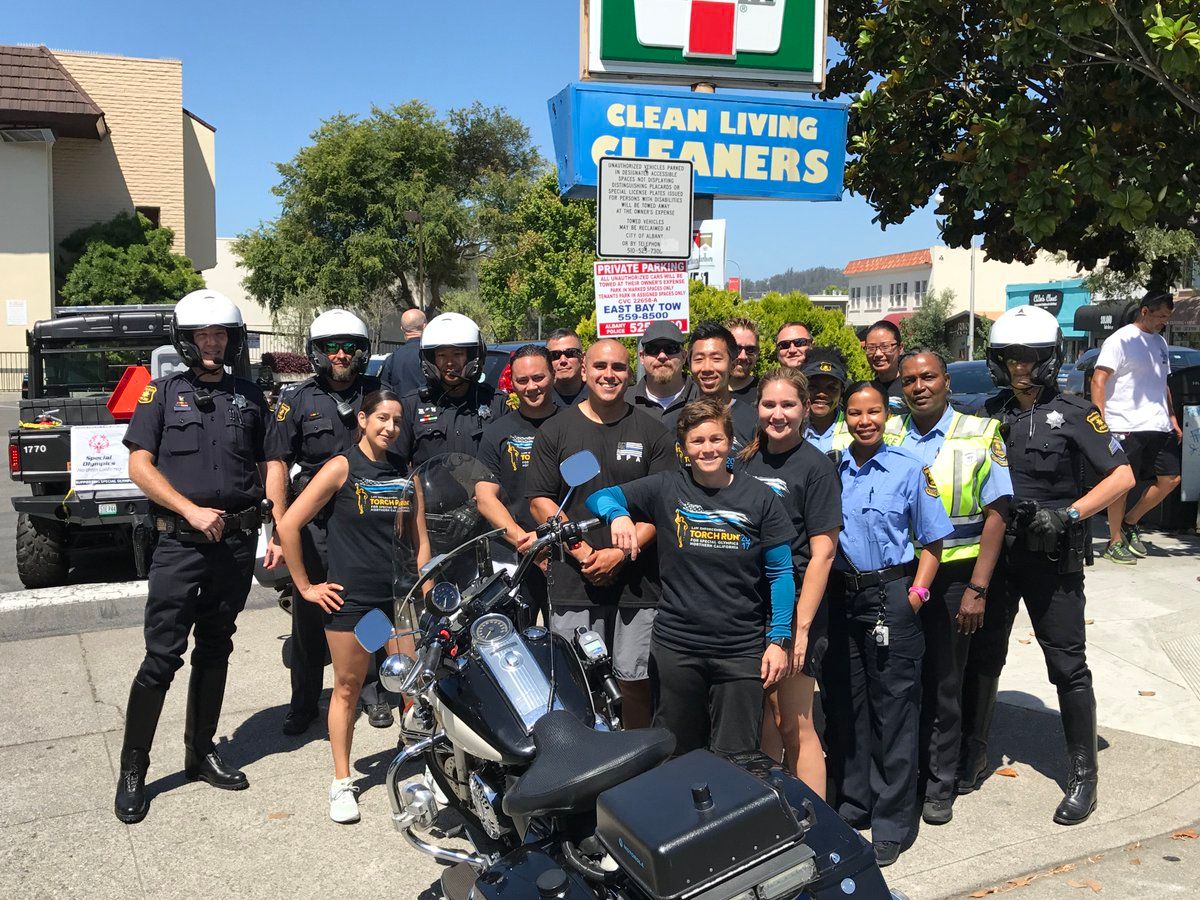
Since 2018, this reporter — formerly at Berkeleyside — has spoken at length to well over 30 current and former Berkeley police officers, as well more than a half-dozen attorneys, including experts in police discipline and media law, and reviewed extensive documents to learn about the extent of the allegations, formal and otherwise, against Jen Louis.
When the city ultimately deemed Louis' violation to be a letter of reprimand, which is the lowest level of discipline and has already been purged from her personnel file, the question of whether to surface the allegations against her became less clear.
While at Berkeleyside, we discussed the matter with attorneys and editors over the span of more than a year. At the time, some of the involved parties did not want their allegations to be public and all but one wished to remain anonymous.
We also did not have access to as many of the records as we were able to obtain independently in the past week.
Because of those factors, we ultimately decided there was not enough evidence to support publication.
In recent months, officers had resurfaced the subject of the 2017 misconduct investigation after the city manager chose Louis as her top pick to be Berkeley's permanent police chief in October.
A council vote is needed to ratify that decision. And that vote is currently on hold indefinitely pending the outcome of a separate misconduct inquiry.
The uncertainty around the police chief vote seems to have given officers who wanted to expose the 2017 misconduct claims a final chance to do so.
For some, the publication of the LA Times story was a relief and a vindication. Others described it as a distraction.
There is often a tension between what people want to know about police misconduct and what legally can be shared about what is supposed to be a confidential process.
That's because misconduct investigations are part of officer personnel records, which for many years were completely off-limits to the public in California.
In recent years, the state has expanded the police misconduct records that can be released. This now includes officer-involved shootings, incidents involving certain types of force, sexual assault on duty and sustained findings of dishonesty and discrimination.
The Louis investigation did not fall into any of the releasable categories.
Earlier this year, the city told this reporter — then working for Berkeleyside — that no disclosable records existed, some because of the confidentiality of most police personnel records and others due to attorney-client privilege and similar protections.
The city never made that Public Records Act inquiry public, which it generally does at the conclusion of the records request process.
The Berkeley Scanner obtained some of those records over the past week through other channels.
It's worth noting that city officials — both council members and members of the Police Accountability Board — are often privy to confidential information, which could include personnel records.
But it's less clear what they should have been told in this case.
Attorneys say reprimand letter was likely off-limits
That's because Louis' letter of reprimand was removed from her file in 2020 in line with the agreement she and the city had reached at the conclusion of the misconduct investigation in 2018.
The removal of the letter equated to the investigative findings being expunged, five attorneys told The Berkeley Scanner in recent days. In light of that, they said, it likely should not have been disclosed during any discussion of whether Louis would be promoted.
That's in part because the city's disciplinary process is designed to be corrective rather than punitive — particularly when there are no new offenses.
Alison Berry Wilkinson, Louis' attorney, said that — in her view — the letter appropriately had not come up during the hiring process. And nothing else in Louis' file relates to the misconduct investigation, she said.
"I don’t believe it was within the city manager’s discretion to disclose the matter to the council because that would have violated the promise made in the reprimand, which was the matter would be removed from her performance record if she 'received no other disciplinary actions' in the established time period," she said.
She said the reprimand was like a contract: "If the employee fulfills the duties and obligations set forth, then the city manager is required to treat the reprimand as if it never happened."
Other attorneys — those familiar with the police disciplinary process and otherwise — said the city manager might have been able to bring up the investigation, broadly, had council members asked an open-ended question such as, is there anything else we should know?
But ultimately, all agreed, that would likely not have been appropriate.
"If something’s removed, it really shouldn’t even be referenced," one attorney said.
The letter of reprimand is essentially advisory, he said: "It’s the equivalent of not getting a ticket — but getting a warning instead."
One BPD retiree largely concurred with the attorneys but took a slightly different view of the situation.
He said the city manager may have had another option available to her, which would have been to hire someone to do an updated background investigation on Louis.
During that process, candidates are asked whether they have been investigated or subject to discipline. The resulting evaluation becomes part of the personnel file. And it doesn't come out.
The city does background investigations on external BPD candidates — but not internal ones, the retiree said. So Louis would have had to agree to the idea.
That may have been the safest way to ensure the process could not be criticized, he said.
"They banked on the fact that the letter went away," he said. "But human memory is still there and people can still talk."
Misconduct claims stemmed from SWAT team barbecue
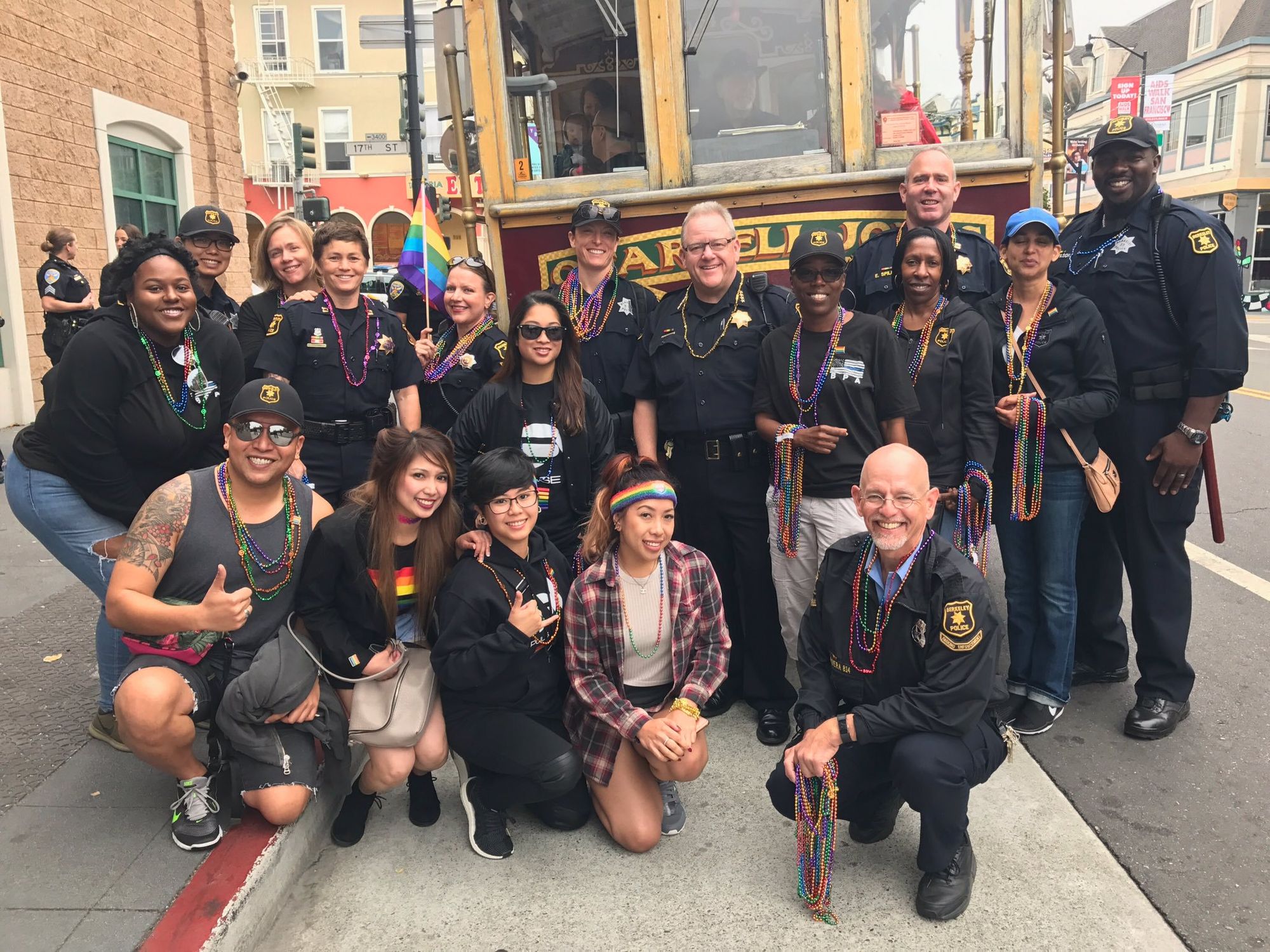
Rumors about the 2017 misconduct investigation have run rampant in the Berkeley Police Department for years.
Many officers were questioned about the allegations but — due to the confidential nature of the disciplinary process — very few ever knew the final outcome, or even what the claims were in the first place.
The city launched the investigation in 2017 after learning about concerns expressed by Heather Haney, who was a full-time Berkeley police officer at the time. (She is no longer.)
Haney had described going to a family barbecue in May 2017 for members of BPD's Special Response Team, more commonly called SWAT.
During the event, kids were throwing water balloons and party-goers had been told to bring a change of clothes, Wilkinson said.
Haney said Louis had made suggestive comments during the party, twice telling her daughter to throw water balloons at Haney because she was wearing a white tank top.
Louis had also brought her wife and newborn baby to the party and, during a conversation with other mothers about the challenges of breastfeeding, had said of the baby: "She likes to fuck around with the nipple."
According to Haney, Louis then turned to her and said: "You know what that's like."
Haney said she thought Louis was implying she could identify with the comment "because I'm gay or dating a girl or whatever the case may be," according to a transcript of Haney's interview from the investigation.
Two mothers who were part of that conversation told The Berkeley Scanner that Louis had addressed her comments to them, not Haney. They said the comments were in no way sexual.
In the end, City Manager Williams-Ridley exonerated Louis of any impropriety related to the breastfeeding remark.
But she did find that Louis' white tank top comments had been "unprofessional and exhibited poor judgment," and had violated the city's policy regarding respect among employees, which at the time read (in its entirety): "Employees shall treat other members of the Department with respect and response due them as fellow employees."
"Regardless of the exact words that you used or your intent, your statements were outside the bounds of acceptable professional behavior of a Police Captain," the city manager wrote in her letter of reprimand, dated May 10, 2018. "I concur with Chief Greenwood that as a senior member of the department, you must set a tone of professionalism and respect toward your fellow officers at all levels of the organization."
Berkeley Police Chief: 'I was fully cleared five years ago'
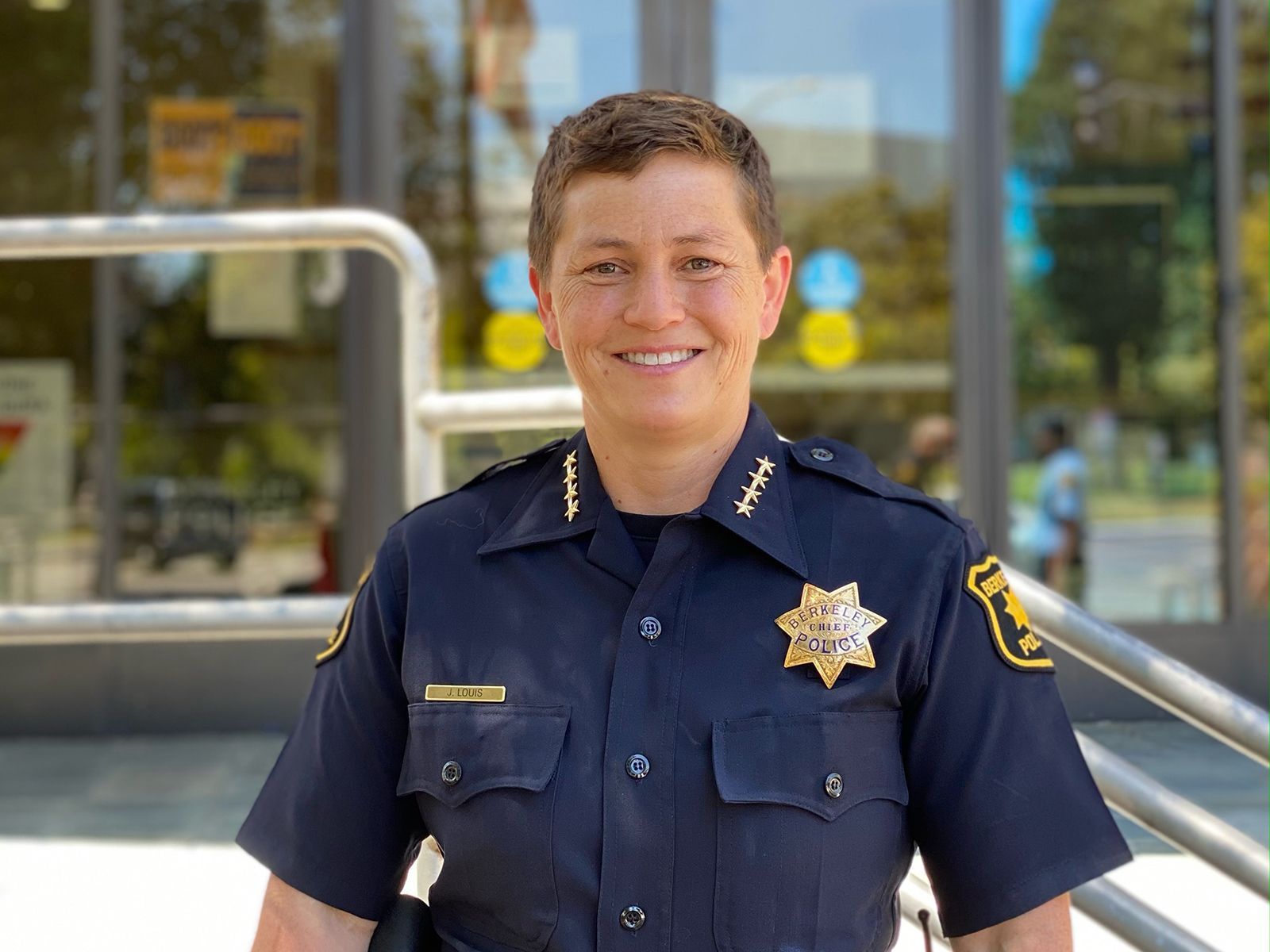
Williams-Ridley's letter came nearly a year after the SWAT team party and seven months after the firm hired by the city to conduct the misconduct investigation had completed its work.
In October 2017, that law firm, Burke, Williams & Sorensen, LLP, had found that Louis violated Berkeley's harassment policy when she made the three comments.
In the next stage of the process, then-BPD Chief Andy Greenwood made the same findings. He recommended a five-day suspension.
But Berkeley's disciplinary process does not end with the police chief. Officers who disagree with the chief's findings or have more information to share can take their case to the city manager's office.
Louis did appeal to the city manager's office and presented evidence that her comments "could not have been reasonably perceived as 'sexual,' or based on Officer Haney’s sex or sexual orientation," Wilkinson told The Scanner.
She said the appeal process allows an officer to present evidence that was not considered by the initial investigator — or may have been ignored.
When Louis was interviewed, Wilkinson said, she had referenced several witnesses who had been party to the conversations at the barbecue and had key information.
"He never bothered to interview them," Wilkinson said.
On the day of the barbecue, Louis had helped fill water balloons to give to the many children there.
"Since the kids were young and most did not know the names of the adults at the party, then-Captain Louis would encourage them by saying things like: 'get the person in the red hat,' or 'that man over there,'" Wilkinson said.
One witness to the tank top comments told The Scanner that Louis' remarks had been taken out of context.
"I think that, if Heather had been wearing a black tank top that day, Jen would have referenced that," she said. "She was trying to make Heather feel like part of the team. She was trying to make her feel included."
A staffer in the city manager's office heard the Louis appeal in January 2018 and found that the comments were not sexual and did not violate the city's discrimination or harassment policies, according to Wilkinson.
In the end, Williams-Ridley reduced the harassment violation to discourtesy and the five-day suspension to a letter of reprimand.
The city did require Louis to participate in one-on-one training "addressing professionalism and respectful communication in the workplace, to include training regarding harassment prevention."
"The sexual harassment allegations made against me in 2017 were false," Louis said this past week. "I was fully cleared five years ago after a thorough appeal hearing that included presentation of considerable witness evidence the investigator failed to include or obtain during his examination."
'Rumors take on a life of their own'
In the absence of all the details — because the investigation and its findings were confidential until the LA Times reported them — speculation inevitably fueled the rumor mill. And, for years, those rumors have festered among some at BPD.
"People get bits and pieces of what they believe is happening," one officer said. "They really don’t know. And rumors take on a life of their own."
Numerous officers have said in recent months that they do not have confidence in Louis to lead them given the nature of the allegations.
A smaller number have been vocal in their support of Louis, who would be the first Asian American, female and openly gay police chief in Berkeley.
"She's a really smart woman, a strong woman. I just think there are certain people that just don't like that," one officer said. "What I hear about her doesn't match up with what I have experienced."
"Jen’s done a good job under very challenging circumstances," said another, of Louis' tenure as chief.
On the other hand, Louis' detractors have said it felt like Williams-Ridley had swept the investigation under the rug and sanitized its findings — particularly because Louis was already BPD's heir apparent in 2017.
"They were calling her 'Chief Louis' before all this happened," one BPD retiree said. "That was the fear of people to tell the truth of what happened that day."
Anyone who participated in the investigation knew that Louis would be able to read what they had written — and then continue to have significant power at BPD unless she was subject to serious discipline.
Officers also noted that Louis had remained above Haney in the chain of command — overseeing the entire patrol division — for months after the initial investigator had found a violation of the city's harassment policy.
And Louis stayed in charge of the SWAT team for even longer, officers said.
But others said that is because no discipline can be imposed until the completion of the entire misconduct review process.
Still, for many in the department, the optics were not good.
Many officers also said they had hoped the city would have taken a stronger position on what happened at the SWAT barbecue and the allegations that followed — particularly when it came to someone as high-ranking as a captain.
"People expected more, possibly a demotion," said one former BPD officer. "They thought something serious was going to happen."


